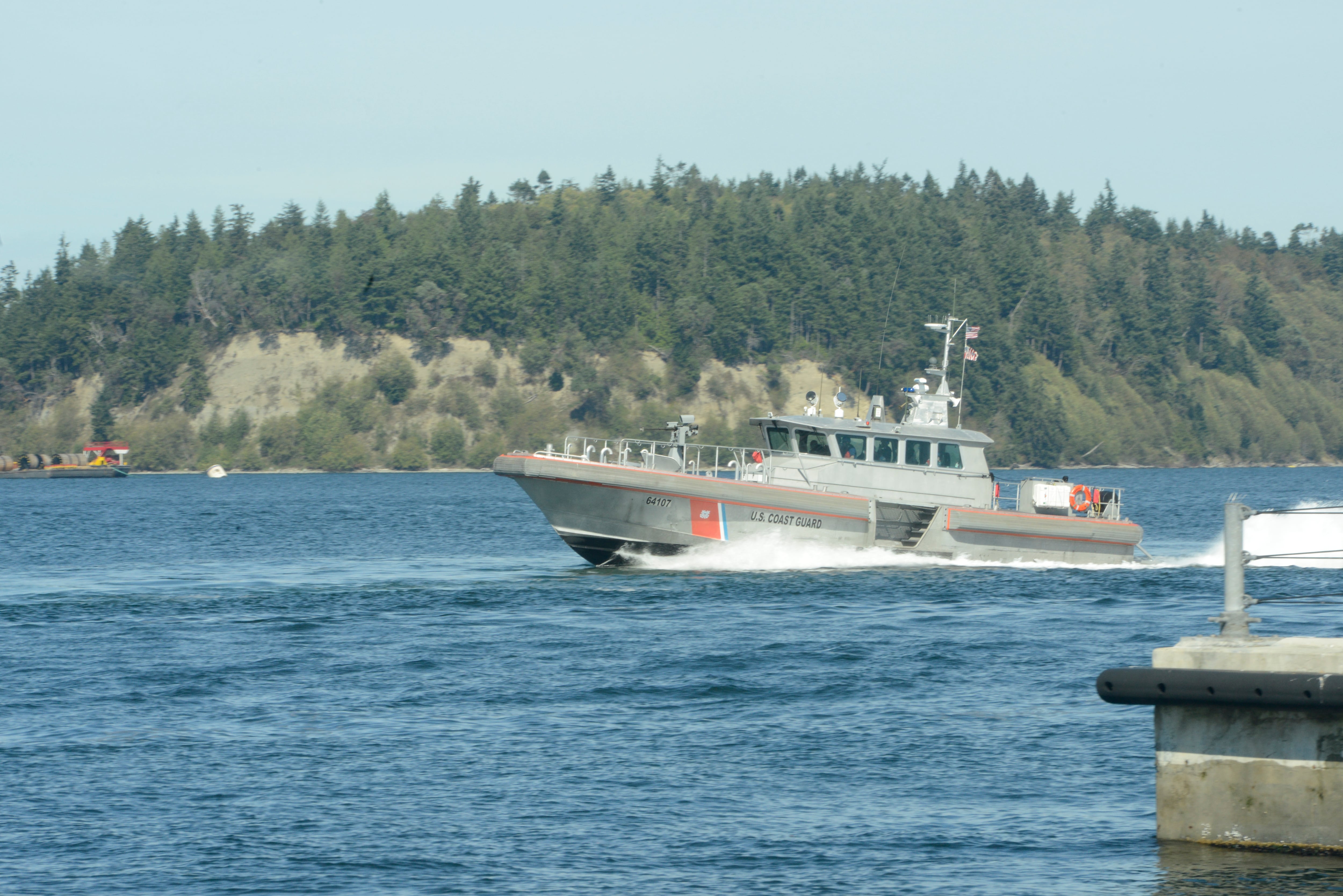SEATTLE — A federal judge in Washington state is considering whether to block President Donald Trump from diverting billions of dollars from military construction projects to build sections of border wall along the Southern border.
U.S. District Court Judge Barbara Rothstein said Thursday she hoped to rule within a few weeks on the state's challenge to the administration. An appeals court ruling expected soon in a similar challenge could take precedence over her decision.
Washington is far from the U.S.-Mexico border, but Attorney General Bob Ferguson argues that the state nevertheless would be harmed if the administration's plans go forward. The Pentagon has shifted $3.6 billion from military construction projects — one of them in Washington state — to build 175 miles of border fencing in four states.
Losing that construction money — $89 million for a pier and other security improvements at Naval Base Kitsap west of Seattle — would cost the state $2.6 million in tax revenue over the next two years, and that’s enough to give Washington standing to challenge the administration’s plans in court, Ferguson said.
Lawyers for Washington and the Justice Department argued the case before Rothstein on Thursday amid fast-moving developments in the case.
The Sierra Club has asked the 9th U.S. Circuit Court of Appeals in a related challenge to issue an order by Friday blocking the government from using the money. Meanwhile, the government is already working on sections of the wall and is planning to break ground as soon as Friday on other sections, near El Paso, Texas, and Yuma, Arizona.
Meanwhile, the administration has recently said it is now seeking to build an additional 270 miles of barriers.

Border wall opponents, including Washington, have argued that under the Constitution, Congress has the power of the purse, not the president. Congress in late 2018 and early 2019 refused to give Trump all of the money he wanted for a border wall, leading to a 35-day partial government shutdown.
Lawmakers eventually gave Trump just $1.4 billion in wall funding. In reaction, he declared a national emergency that, the administration says, allowed him to shift almost three times as much money from military accounts to wall building.
Andrew Hughes, an assistant Washington attorney general, told Rothstein during arguments Thursday that the administration is assaulting the separation of powers.
"The fundamental question in this case is whether the administration is entitled to take money Congress repeatedly said it couldn't have in order to build a border wall," Hughes said.

The state is also arguing that the way the government reassigned the money from military construction projects to building a border wall violated a number of other legal requirements, including that the money be necessary for military use rather than the civilian goal of better enforcing immigration laws.
Hughes asked the judge to block the $3.6 billion entirely as a violation of the Administrative Procedures Act.
Justice Department attorney Andrew Warden told the judge that the president acted within his authority to declare the national emergency and that the court should not second-guess the military's discretion in shifting the money.
The U.S. Supreme Court last summer lifted a court order that prevented the government from spending $2.5 billion from the Defense Department's money for military pensions and anti-drug efforts. But legal challenges continue with regard to that money as well as the $3.6 billion the Pentagon is diverting from military construction projects.
Federal judges in Texas and California have found the administration's actions unlawful, but the California judge declined to block Trump from spending the money while the government appealed. The Texas judge did block the administration from spending the money, but the 5th Circuit Court of Appeals lifted that prohibition on Jan. 8.
The 5th Circuit's action left no court orders blocking the spending. The next day, the Sierra Club, which filed the California lawsuit, asked the 9th Circuit for an emergency order blocking the government from spending the $3.6 billion. The organization asked the court to rule by Jan. 24 — Friday.
The border wall is one of Trump’s signature issues. He claimed Mexico would pay for it, but that has not happened.
RELATED

Navy Times editor’s note: According to the MCON Book, this project was designed to construct a pile-support reinforced concrete berthing pier for two 250-foot Blocking Vessels, with integrated wave screens to protect adjacent shoreline from waves and underside pier utilities from floating debris, plus shelter Transit Protection System small craft during storms.
It eventually will have a reinforced concrete access trestle to the pier and a boat shop with high bay, pedestal jib cranes and enough slab on grade to support 30 small craft. There will be a diesel fuel station and workers will need to add lines for potable and storm water and sanitary sewers and systems for fire protection and collecting industrial waste.
These facilities are required to support MFPU Bangor’s mission to escort submarines when transiting between the homeport and surface/dive points in the Strait of Juan de Fuca and the test range. That’s mandated by the National Security Presidential Directive and Instructions through the Nuclear Weapons Security Program.
Military planners wanted this project because the 250-foot BVs are in a constant “nomadic state,” shifting berths due to a lack of adequate pier space. In Bangor, officials estimate they need berthing spaces about 253 days per year. They apparently moor now at Marginal North Pier in the restricted area, if space is available.
As for BV maintenance, the program has less than half the space it requires and it’s spread across multiple facilities. Small craft maintenance occurs in three facilities and seven temporary storage structures.
The crews draw their fuel from a converted Ship Waste Oily Barge, which costs about $800,000 per year for up to 14 weeks of dry-docking overhaul and tank inspection and repairs.
To resupply the SWOB, workers spend 12 hours towing it from Defense Logistics Agency Manchester and back.




